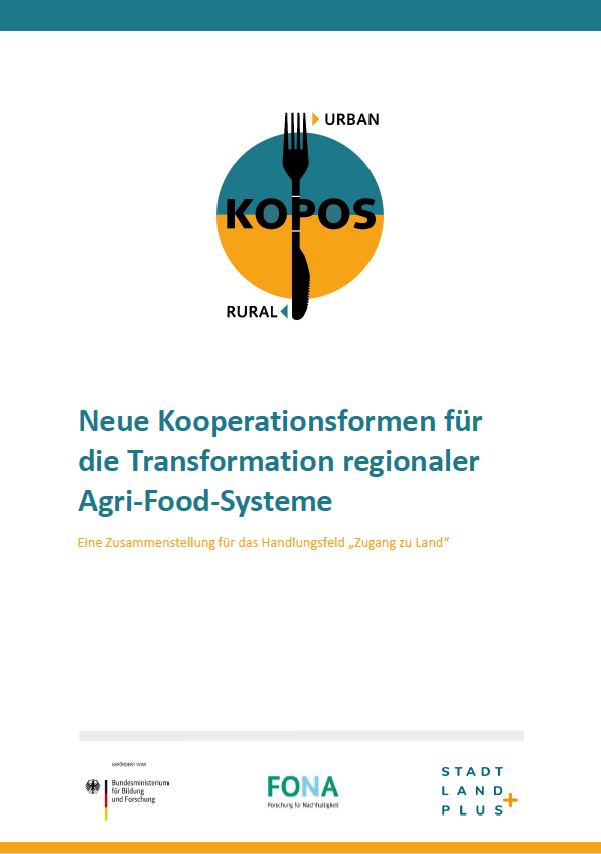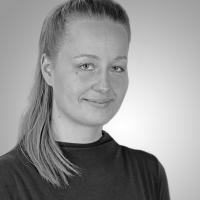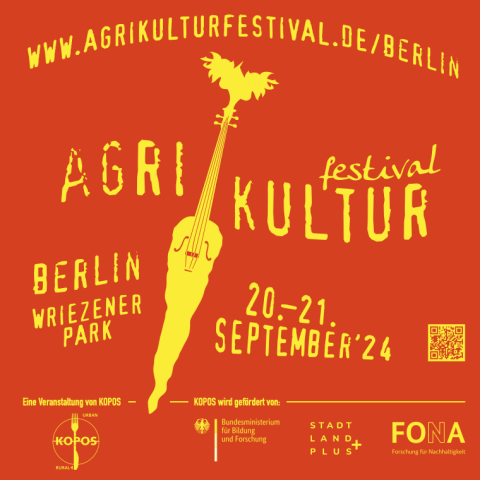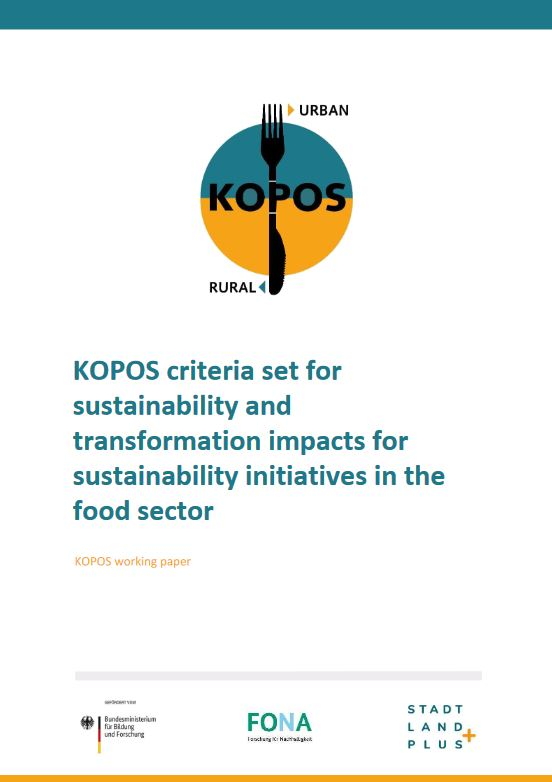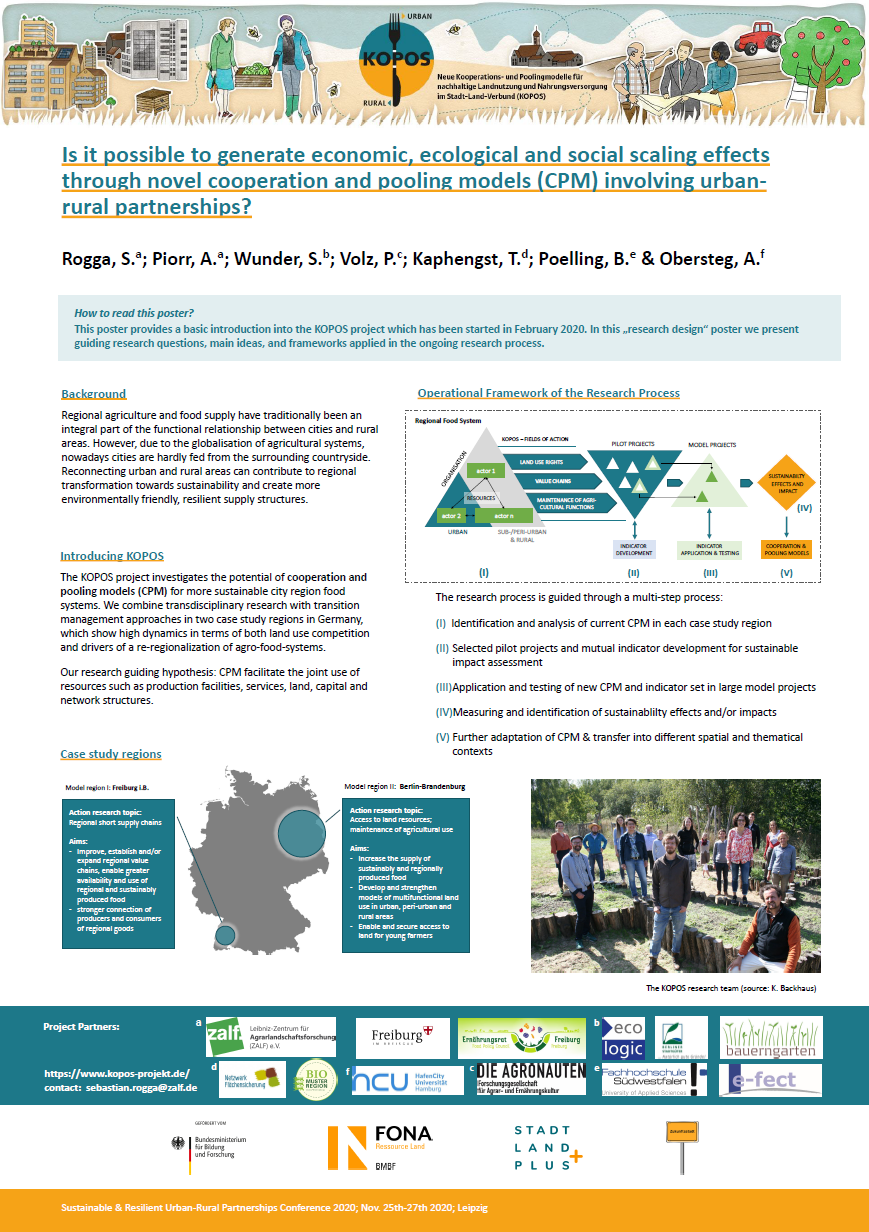Neue Kooperationsformen für die Transformation regionaler Agri-Food-Systeme
Eine Zusammenstellung für das Handlungsfeld "Zugang zu Land"
- Publication
- Citation
Rogga, Sebastian; Annette Piorr, Katrin Martens 2024. Neue Kooperationsformen für die Transformation regionaler Agri-Food-Systeme. Eine Zusammenstellung für das Handlungsfeld "Zugang zu Land". ZALF, Ecologic Institute: Müncheberg, Berlin.
Global agricultural and food systems (agri-food systems, AFS) are highly industrialised and concentrate much of the power in the hands of a few multinational corporations. This leads to social inequality, ecological damage and unfair labour conditions. At the same time, globalised systems contribute significantly to nutritional problems, such as diseases caused by processed food. In view of these challenges, regional approaches are becoming increasingly important.
Regional agri-food systems as a sustainable alternative
Regional agri-food systems offer an opportunity to reduce the negative consequences of globalisation. They focus on shorter value chains, promote regional economic cycles and help to reduce CO₂ emissions. They also enable the traceability of food and a close connection between producers and consumers. In metropolitan regions such as Berlin-Brandenburg in particular, there is great potential for sustainable food production.
New cooperation models to promote sustainability
The KOPOS research project is investigating how new cooperation and pooling models can be used in regional agricultural and food systems in order to establish more sustainable and resilient supply systems. Such models include, for example, the pooling of resources and joint access to land. One aim is to overcome barriers such as the rising cost of agricultural land and to make it easier for young farmers to get started.
Practical examples and innovative approaches
The models analysed in the project include forms of cooperation such as cooperatives, solidarity farming (SoLaWi) and platforms for brokering agricultural land. These not only promote economic cooperation, but also knowledge transfer and social networking. One example is 'Regionalwert AG', which pools capital from citizens to support regional businesses.
Project information
The KOPOS project, funded by the Federal Ministry of Education and Research (BMBF), is developing practical solutions to strengthen regional agricultural and food systems, including in the Berlin-Brandenburg capital region, and to secure agricultural utilisation through cooperative models.
